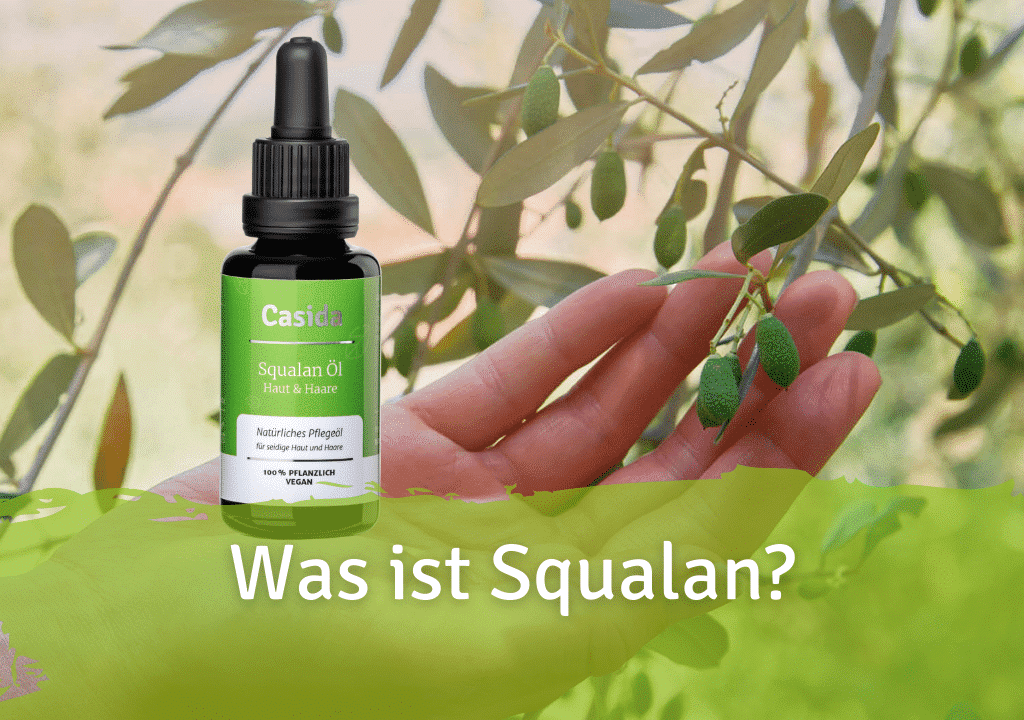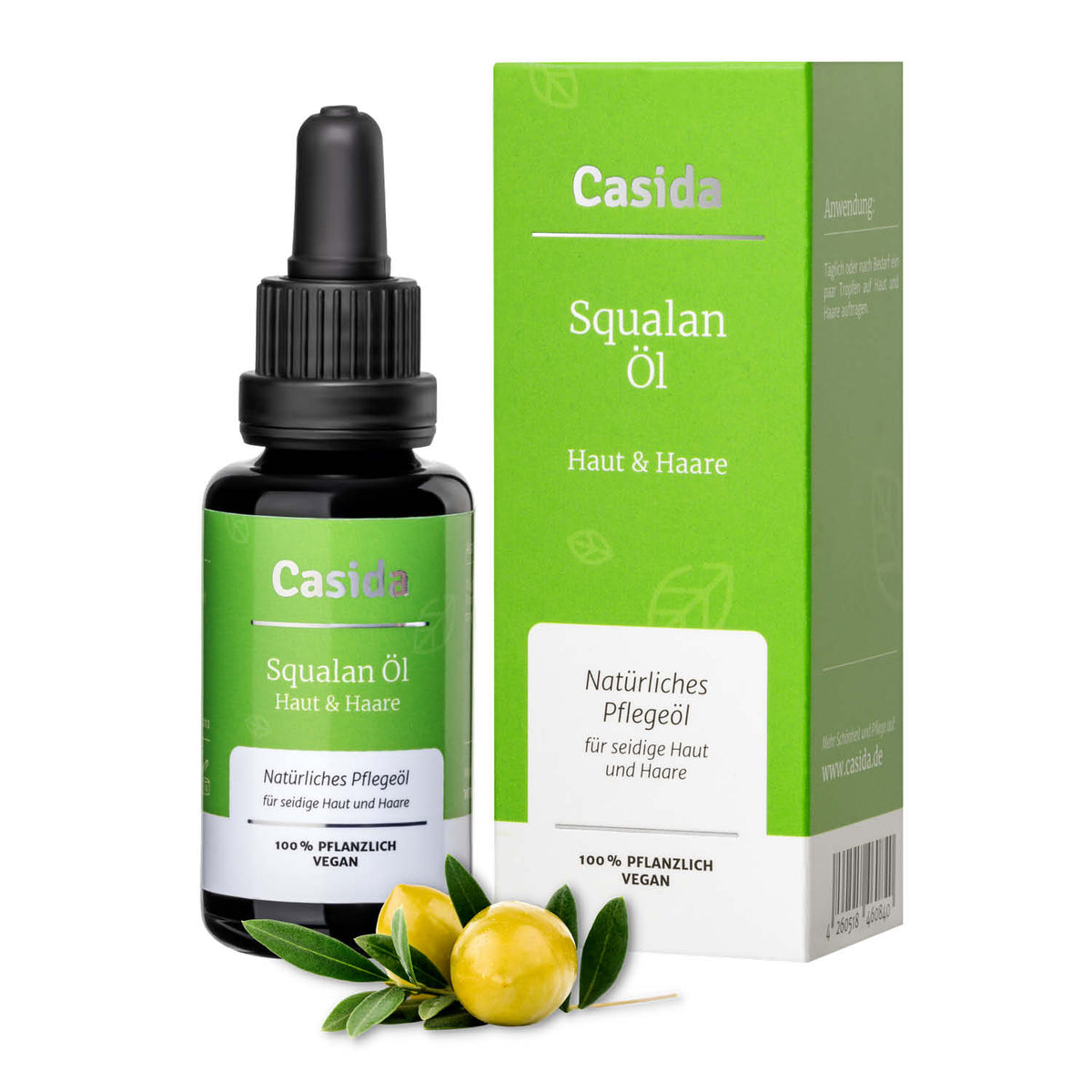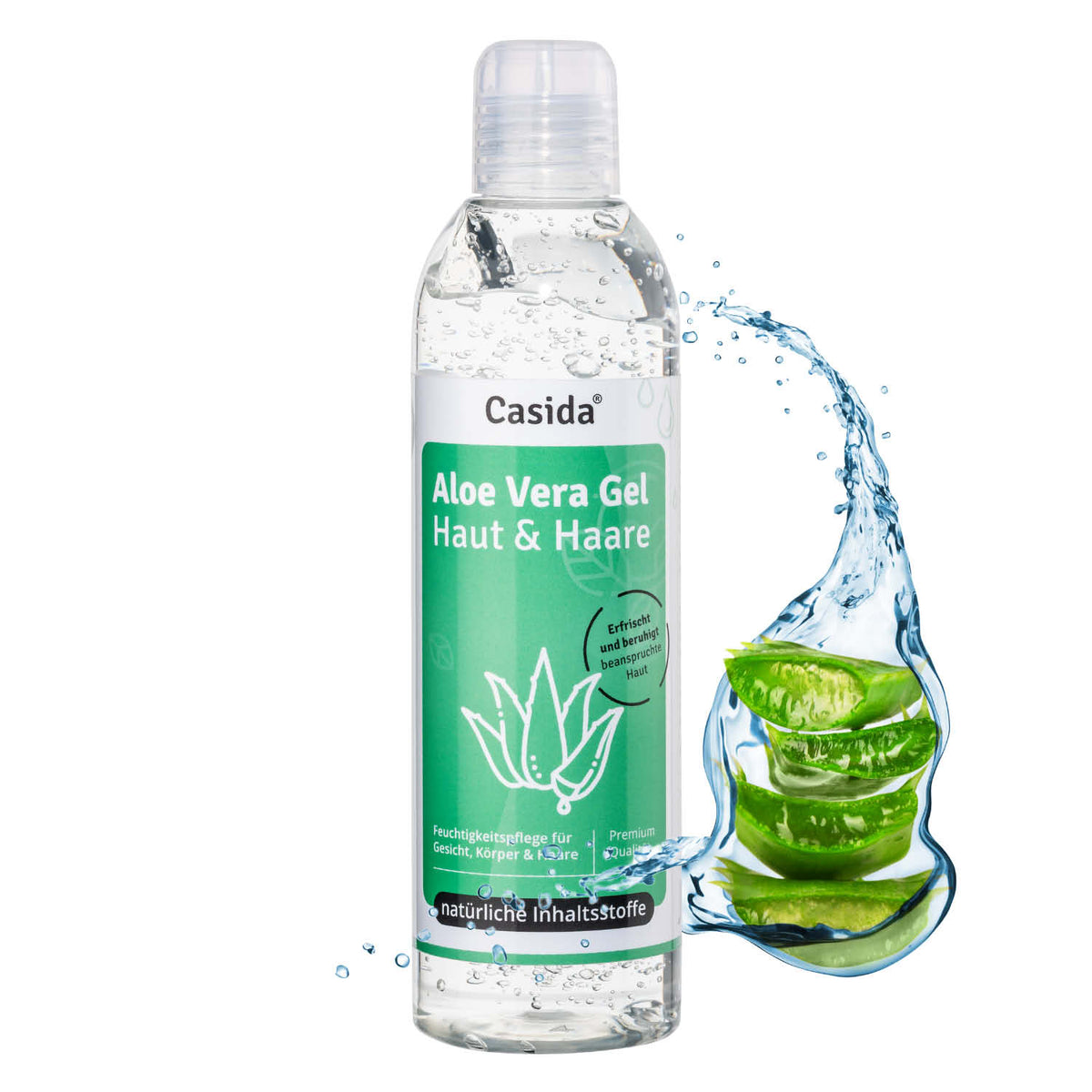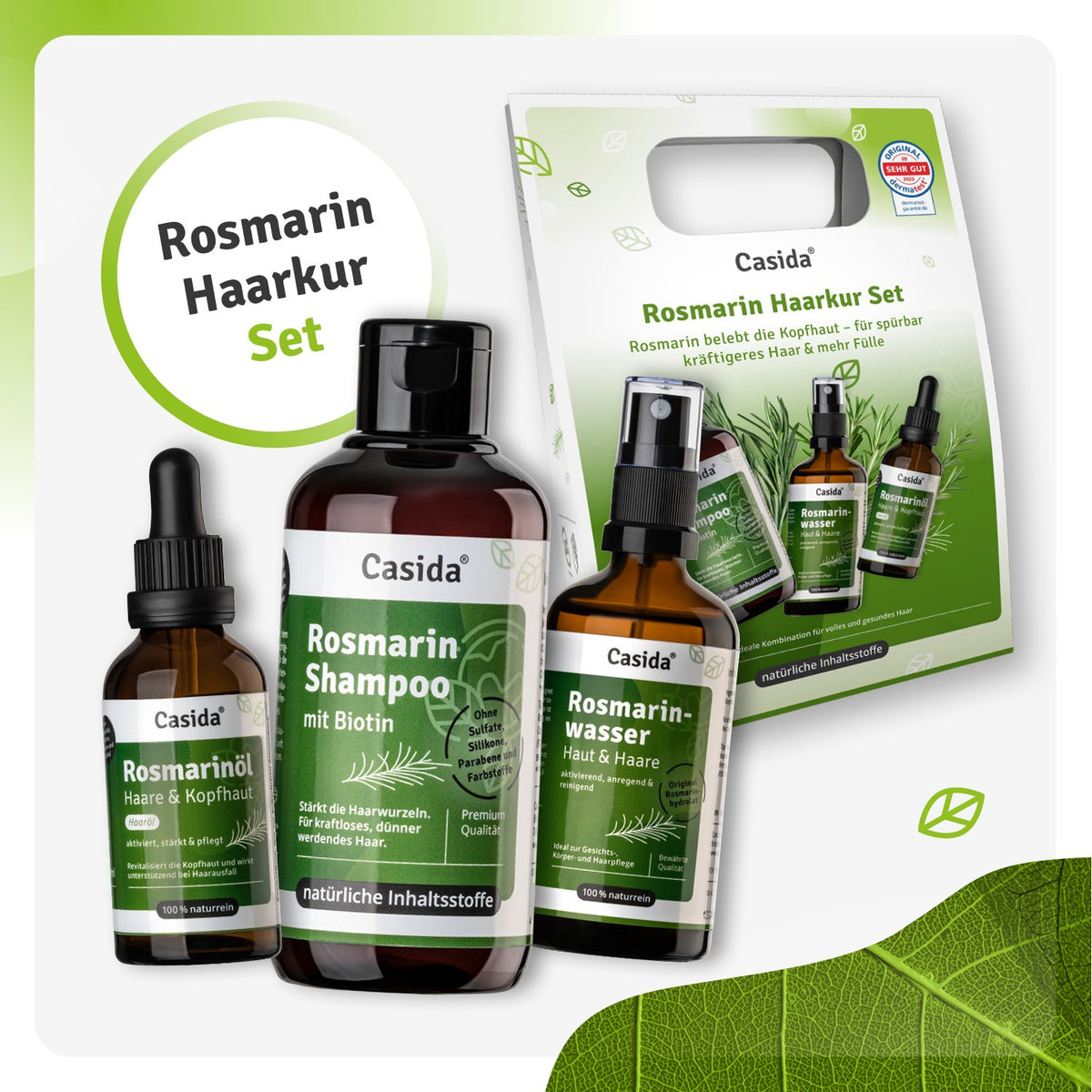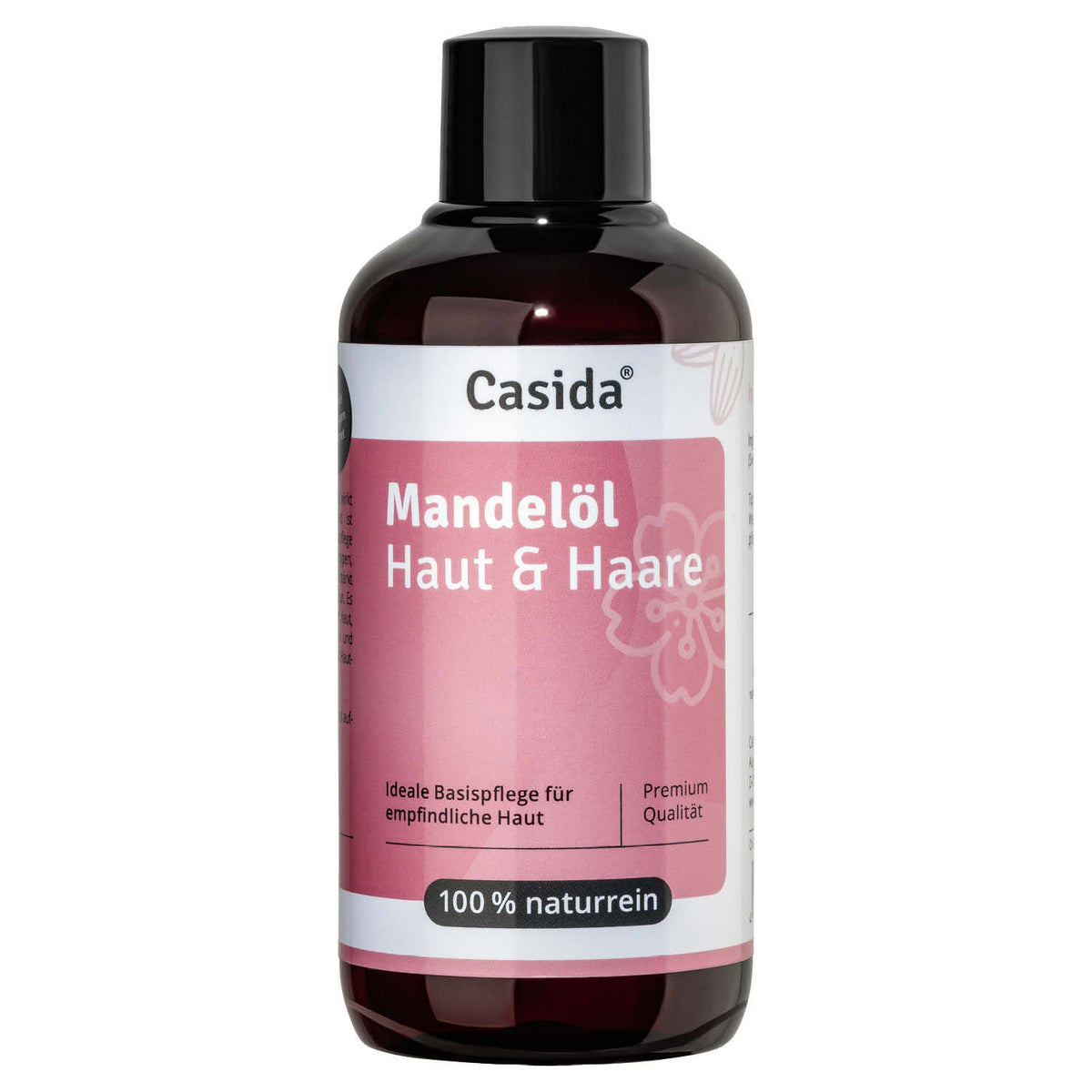Plant-derived squalane is a natural shield against dryness and a true boon for skin and hair. We introduce this skincare ingredient.
We all desire healthy, smooth, even-toned skin. But when we look in the mirror, we see the signs of aging. Skin aging often has one root cause: a lack of moisture. If the skin is dehydrated, this manifests itself in redness, itching, fine lines and wrinkles, as well as itching and tightness after cleansing. It also appears less plump and replumped. And instead of a fresh glow, the complexion looks tired and dull. If the skin lacks moisture—and this over a longer period of time—it can damage the skin barrier. The result: Potential environmental irritants such as cold, UV radiation, low-humidity heating air, and germs easily irritate the skin. In addition to the symptoms of dryness, other signs of premature skin aging, such as pigmentation spots or blemishes, can also occur. Furthermore, it is much more difficult for the skin to retain moisture if the skin barrier is not intact. It's a vicious cycle—but there is help.
Table of Contents
What is squalane?
This active ingredient has proven to be a real benefactor for normal and dry skin. Squalane is extracted from amaranth, olive, avocado, wheat germ, or rice oils. The olive variant is particularly popular and often used in cosmetics. What makes squalane special is that it is a natural component of the skin's barrier, more specifically, the skin's hydrolipid film, which acts as a protective shield. The squalane produced from plants resembles the chemical structure of the skin's own squalane and is therefore very well and effectively absorbed by the skin.
Why is squalane so good for the skin?
It provides moisture and fats – both of which the skin needs to be smooth, supple, and healthy. Squalane has the additional effect of forming a wafer-thin layer on the skin, preventing moisture loss and allowing it to retain it better. The protective layer also keeps environmental irritants at bay. Other positive effects on the skin:
- binds large amounts of moisture and prevents moisture loss
- keeps the skin's hydrolipid film intact
- makes the skin resistant to external irritants
- ensures that other cosmetic products can be absorbed better
- supplies the skin with nutrients
Which skin types benefit from squalane?
Squalane is non-comedogenic. This means it does not clog pores. Therefore, even oily skin types and normal skin can benefit from this plant-based active ingredient. It provides optimal support for dry and mature skin. It also provides good support for sensitive skin prone to redness.
How is squalane used correctly?
Squalane has an oily consistency. It is often used pure or mixed with other oils such as chamomile oil, calendula oil, sea buckthorn oil, or avocado oil. It also perfectly complements hyaluronic acid—the ultimate moisturizer in skincare. Squalane is a popular and currently very trendy active ingredient in facial oils, serums, ampoules, and creams. Casida offers pure squalane in a violet glass bottle with a dropper for precise dosing. The "Squalane Oil" is fragrance-neutral, absorbs quickly, and leaves no greasy film, but rather a silky-soft finish.
Does squalane also nourish hair?
This also applies to hair. Although squalane is not a natural component of hair, it is absorbed very well and wraps itself around the hair like a coat. It is ideal as a heat protectant, leave-in conditioner, and combing aid for unruly hair. It prevents dryness, breakage, and split ends. Even dull hair regains a beautiful silky shine thanks to squalane. This all-round beauty product should be massaged sparingly into the hair lengths to avoid weighing it down. For shoulder-length hair, 2-3 drops of Casida's "Squalane Oil" are sufficient. Your skin and hair will thank you within a few days.
Sources & further reading:
- Encyclopedia entry on squalene in "Encyclopedia of Biology", Spektrum der Wissenschaft Verlagsgesellschaft mbH, available online at: https://www.spektrum.de/lexikon/biologie/squalen/63117
- Ehle, Claudia (2012): "Hautsache gesund!: Where lies the cause of many skin problems? Care guide from a natural cosmetician." BoD Books on Demand ISBN 9783844865967
Lea Becker is a freelance journalist specializing in health and beauty. She studied journalism at AMD Düsseldorf and writes for renowned trade journals, print and online magazines. Her focus is on natural health maintenance, skin care, and decorative cosmetics.
Important note / disclaimer: As pharmacists, we share our pharmaceutical expertise and wealth of naturopathic experience in the Casida guide. Individual diagnosis and consultation are always necessary. Therefore, this service cannot replace medical advice. This service is not intended to treat, cure, or prevent any disease. It is not a substitute for medication or other treatments prescribed by a doctor.




